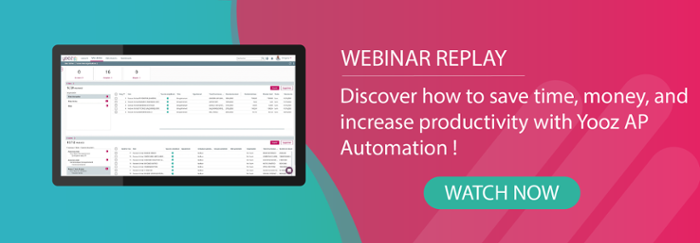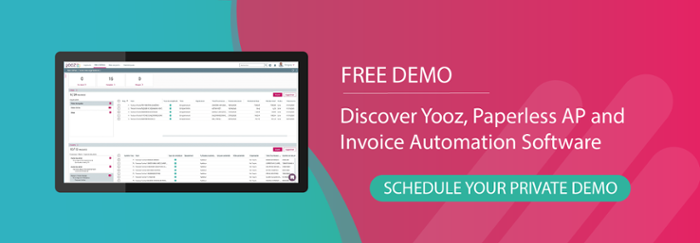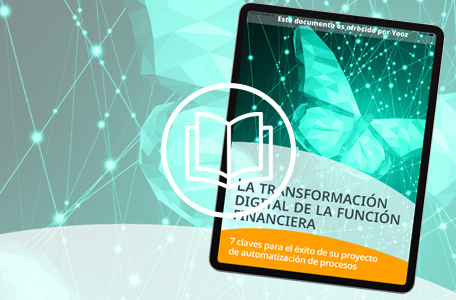Robots can be found everywhere. There are robotic arms swiveling around in cages that weld and paint car bodies at a dizzying clip. Collaborative bots zip around modern warehouses alongside human workers, helping them speed up picking, packing, and even shipping to customers. And let's not forget the growing number of people welcome robotic vacuum cleaners into their homes.
However, physical robots - the ones that we see and hear - aren't the only ones out there helping. For example, when we look deeper into how technology is being used to advance business enterprise processes - specifically into the realm of digitalisation in finance - it's clear that cutting-edge finance and accounting departments are also making room for a tireless army of invisible, software-based robots to help them boost performance and streamline their business Accounts Payable process.
In fact, robotic process automation in finance and in accounts payable functions has a lot of potential to unlock significant cost and time savings, increase a company's overall efficiency, and give employees and their management valuable and actionable insights that affect the bottom line. It has the ability to impact industries more than anyone could have guessed.
For example, one case is with companies delegating simple and increasingly complex tasks to small programs that go to work independently and intelligently. Using RPA in this way is now such a growing trend that it has engendered its own research outfit, the Institute for Robotic Process Automation and Artificial Intelligence (IRPAAI).
Defining robotic process automation in finance
But what is RPA? In a nutshell, Robotic Process Automation (RPA) is a form of business process technology, one that allows a company to configure software or a 'invisible robot' to mimic back-office tasks of human workers including capturing and interpreting data, filling in forms, moving files, and other basic, repetitive, and typically error-prone tasks across applications. RPA also has the ability to launch and operate other software, with it's actions triggering responses and communications with other digital systems.
Needless to say, any company that uses significant amounts of human laborers for these repetitive processes can both boost capability and save time and money by using RPA software.
This is something that is particularly true for the Accounts Payable (AP) process. Automation has, of course, been the name of the game for a while now, with Optical Character Recognition (OCR) augmenting or replacing manual entry. However, the implementation of RPA goes further than scanning invoices or purchasing orders and turning them into a file because these invisible bots have the capability to get multi-step tasks done without human intervention.
RPA for Accounts Payable teams: from invoices to inquiries
The RPA powered workflow on Yooz's invoice process automation platform is able to ingest invoices, add data to a database and manipulate it, exchange information with other applications such as an ERP or CRM system, and even trigger complex actions such as flagging suspicious items for human review, responding to a query or initiating a chat with a supplier up to the point where a human expert should step in.
What's more, RPA in finance is accessible to businesses of all sizes. It is no longer simply the domain of large banks or other companies with big IT or project budgets. Thanks to completely cloud-based platforms, every small and medium-sized business has equal and affordable access to use the same powerful RPA tools as their larger competitors. Yooz goes a step further, constantly researching and finding new ways to improve the system by incorporating the latest in machine-learning and artificial intelligence. This allows an AP team to automate its entire purchase-to-pay workflow easily and quickly - and keep it automated with the latest technology - using invoice and payment process automation software.
The Yooz Accounts Payable automation software includes features that:
- Automatically process invoices regardless of the file type or how it's formatted allowing more flexibility in the way banking and transactions are handled.
- Read, understand, and index each word in a document for later searches and retrieval.
- Assigns the correct GL codes and handles multiple currencies just like an experienced AP clerk does on a daily basis.
- Routes invoices to a designated human for approval or flags outliers for further review.
- Generates real-time insights to lock in early-pay discounts and reports to optimize cash flow that will benefit the entire company's costs.
80% of finance leaders want to implement robotic process automation in finance business processes
With all of the benefits resulting from automation and the invisible robot task force, it's no wonder that "around 80 percent of finance leaders have implemented or are planning to implement RPA", according to IT consultancy Gartner.[1] They estimate that 89 percent of finance robotics is "...evolving from simple individual task automation to full process automation that could improve the accuracy of financial analysis and forecasts".
Consider that RPA is just beginning to transform both the finance and operations process for companies everywhere. Imagine what will happen as technology continues to develop.
What could the impact of RPA mean for a business' accounting office?
If RPA is transforming the finance process, what does this mean for the accounting department? The answer is simple. Once a company turns to using an intelligent, self-learning platform, they can bank on being well on their way to end-to-end invoice and payment process automation. They'll have a new outlook on what it means to be hands-free and streamlining the Accounts Payable process.
Some of the benefits?
RPA helps companies manage risk and meet common compliance standards automatically and accurately, creating an audit trail that is easily accessed at any moment. In fact, RPA systems, Gartner points out, have the same level of security and access as a person to handle and act on data, but with one key distinction; they can work without interruption. The end state sounds like a job description from a science fiction film: "A robot full-time employee (FTE) works at least 20 hours a day, 7 days a week, 52 weeks a year."
This is especially important in countries such as the United Kingdom, where e-Invoicing and tax legislation (such as Making Tax Digital) are setting out evolving rules and regulations.
If maintaining a constant quality output isn't enough, on average RPA technology costs one-third of the cost of an onshore employee and one-fifth the cost of an offshore employee. But these - security, data accuracy, processing time, and cost - are just a few of the obvious benefits of RPA to the Accounts Payable process.
Caution, though! Don't make the mistake of thinking this means that RPA robots are job killers who take away the need for any human interaction in the business, specifically the accounting department. In reality, RPA robots have the completely opposite effect in the financial realm. Their job is to merely excel at taking over routine and repetitive tasks of the traditional manual process and improve efficiency and accuracy in a modern, hands-off form. Exactly the work that most, if not all, Accounts Payable clerks would happily trade in for other work that really challenges them such as tracking down fraudulent submissions or building relationships with suppliers and partners.
RPA software provides a service, it doesn't replace people. Instead, it gives Accounts Payable and Finance staff the opportunity to provide deeply human and therefore valuable input in the finance department.
If you are ready to see how RPA and Yooz can power a digital transformation in your invoice and payment process schedule a call with one of our AP automation experts today!
Empower your finance department with Yooz's Robotic Process Automation in finance
Unlock the potential of robotic process automation in finance with Yooz's advanced solutions, revolutionizing the way businesses manage their financial processes. Yooz combines cutting-edge AI, Deep Learning, and RPA technologies to automate tasks seamlessly, ensuring efficiency and accuracy in financial operations. With Yooz's real-time AI performance and plug-and-play functionality, streamline your finance department's workflow and enhance productivity. Trusted by top accounting firms globally and recognized for its innovation, Yooz is the ultimate choice for businesses seeking to implement robotic process automation in finance. Experience the power of Yooz's all-in-one platform, born in the Cloud and recommended by the global financial ecosystem. Join the ranks of enterprises benefiting from Yooz's strong and durable solution, and propel your finance department into the future with robotic process automation in finance.










